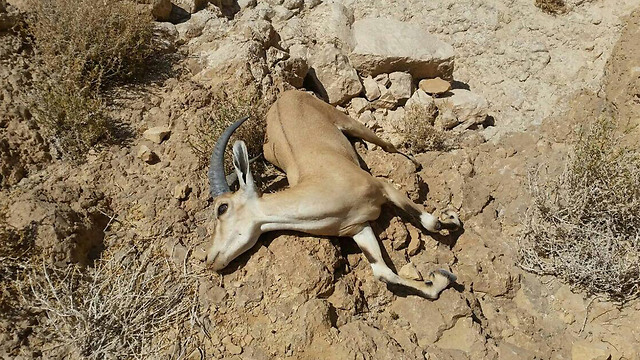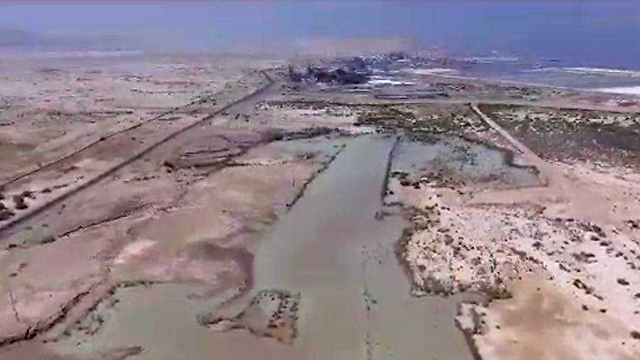
About 100,000 cubic meters of acid spilled into the riverbed when a retaining wall of an evaporation pool at the fertilizer company collapsed. Video footage from Route 90—the main highway running the length of Israel’s eastern border—shows a strong flow of acid rushing through the riverbed.
The ministry said the spill caused “serious damage” to wild and plant life along 20 kilometers of the riverbed, and said it would demand that Rotem begin clean-up efforts immediately.
However, a leading environmentalist says he fears that any effort to hold Rotem accountable will not punish the company for negligence or encourage other companies to invest in security measures to protect the environment.
“Even if the State Attorney brings criminal charges, typically there will be a plea bargain in which the most serious charges are dropped and the company admits guilt. That turns the whole thing into an economic issue—environmental disasters become just another business expense,” said Dr. Alon Tal, chair of the Department of Public Policy at Tel Aviv University and the founder of Adam Teva V’Din, an advocacy NGO committed to protecting Israel’s environment and public health.
Tal told Tazpit Press Service (TPS) that should Rotem be found of criminal wrongdoing, the process of assigning punishment should consist of three elements: An assessment of the ecological damage, an assessment of the company’s financial gain from not having invested in prevention and early-warning systems, and punishment.
“I haven’t been down to the riverbed to survey the damage, but I am certain that a more advanced oversight and warning system would have prevented the disaster. But companies (often) don’t invest in environmental protection measures, they make their money and if something happens, they get fined. But even having paid the fine, the lack of serious ecology measures comes out beneficial to the company,” Tal said.
Tal added that Zionist and Israeli history is replete with examples of poor attitudes to environmental issues because of the State’s attempt to preserve jobs. But as a result, he said the country faces a serious environmental crisis, with massive pollution of rivers, streams, oceans and groundwater.
Asked whether he felt the ministry would use the current incident to make an example of Rotem to send a message of deterrence to other would-be polluters, Tal said he would welcome that eventuality, but added quickly that he would not hold his breath.
“A few years ago, the director general of the ministry employed me as an adviser and asked me to prepare a document – how do we calculate the appropriate punishment for environmental damage. I developed a system called Cherem—a Hebrew-language acronym meaning Calculating Profits of Polluters. It was a whole software program to calculate the profits of polluters, in order to come up with an appropriate punishment.
“They never used it once,” he said.
Article printed with permission from TPS.


















